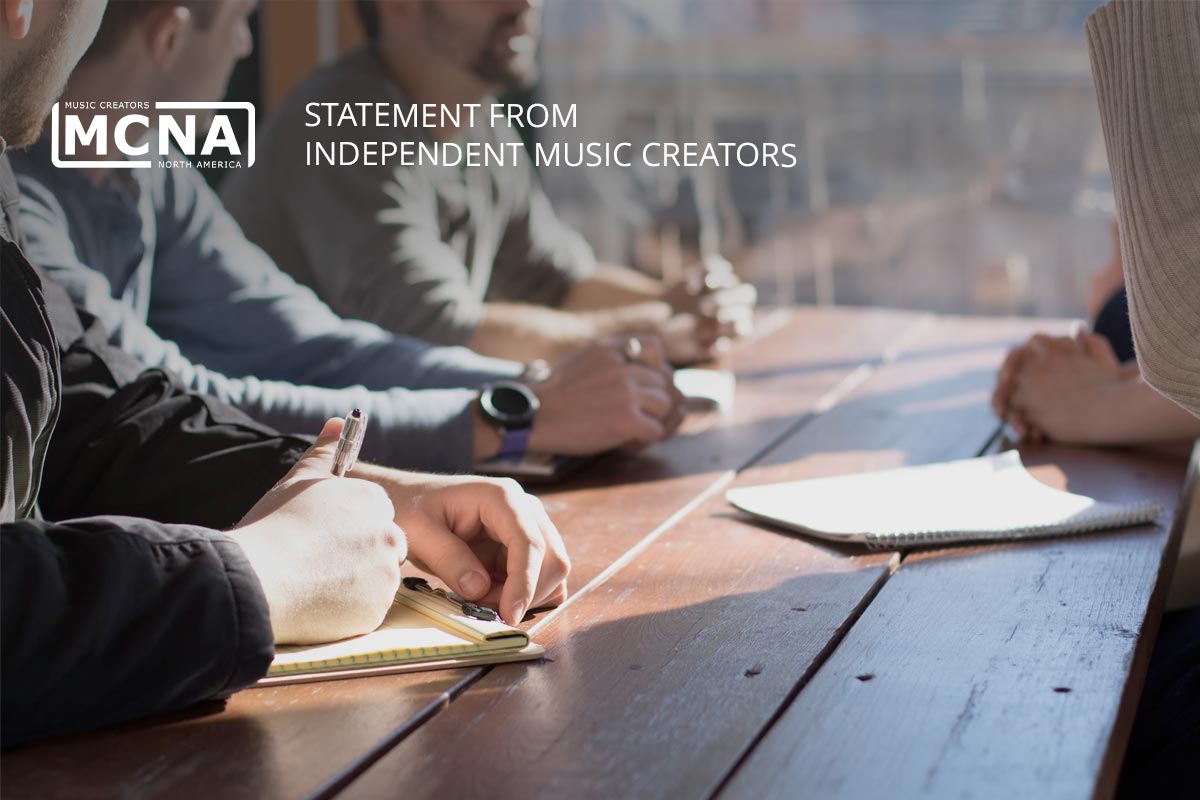Comments of Charles J. Sanders on Behalf of the Songwriters Guild of America, the Society of Composers & Lyricists, and Music Creators North America for the FTC and Justice Department Listening Forum on Firsthand Effects of Mergers and Acquisitions: Media and Entertainment
Thank you for the opportunity to address you today on an issue of great importance to the community of American songwriters, composers and lyricists: the deleterious effects on music creators of vertical integration throughout the US and global music industry. In addition to this brief presentation, I am providing a written statement that I respectfully request be entered into the record of this forum.
I have been asked to speak today on behalf of the Songwriters Guild of America, to which I serve as outside counsel. I am also here representing at their specific requests the Society of Composers & Lyricists (SCL), as well as Music Creators North America (MCNA), the internationally recognized representative of music creators in the US and Canada in the global songwriter/composer community. Together, these groups represent thousands of American music creators and their heirs, and are part of a global network of music creator advocacy organizations that collectively speak on behalf of hundreds of thousands of songwriters, composers and lyricists around the world.
As for myself, I was a professional musician and journalist prior to serving as a copyright fellow at New York University School of Law, and have spent a nearly forty-year career practicing exclusively in the music industry. I have also served as an adjunct professor at New York University for more than twenty-five years, focused principally on teaching the history and structure of the global music industry. Further details of my professional credentials are included in my written statement1.
The principle issue that I want to bring to your attention today is the grossly unlevel playing field that music creators must confront every day in every aspect of their careers. That unfortunate reality has been created in large part by the consolidation and unchecked vertical integration that has taken place over the past several decades throughout the music industry. That is not to say, and I want to emphasize this, that independent music creator groups seek to allege competition violations against any one or more music companies operating in the United States and elsewhere. That is not why I am here.
What I am here to do is to deliver a simple message: In a world of near-total vertical integration, there must be mechanisms put in place to ensure that the independent voice of music creators is clearly heard by government regulators, and meaningfully taken into account, for example, in rulemakings pursuant to federal law and in the setting of royalty rates that will have enormous effect on the ability of music creators to earn a living in the 21st century.
How extensive has consolidation become in the music industry? When one considers the tidal wave of catalog purchases that has taken place in the music sector over just the past several months, it is clear that based upon 2021 revenue statistics, the same three, major global conglomerates that control nearly three quarters of the world’s music recordings also now own or administer approximately two out of every three of the world’s musical compositions2.
Consolidation, however, is not in and of itself the main problem. Rather, it’s the fact that two once separate pillars of the music industry –music recording and music publishing– which at one time dealt with each other at arm’s length, are now for all intents and purposes nearly fully, vertically integrated. As a result, they cannot any longer be rationally relied upon by members of the creative community to negotiate royalty rates and other issues crucial to those creators’ livelihoods in a fair manner. That conundrum is further exacerbated by the complicated relationship of record labels with digital music distribution services, replete with past and potentially present cross-ownership arrangements about which little has been disclosed. The independent music creator community believes those conflicting interests have in turn resulted in gross disparities between the revenues derived by record labels for the digital delivery of music (usually through those same multi-billion dollar, “third-party” distributors), as opposed to the pittance currently received by music creators and independent music publishers. The question of how that systemic reality developed seems to warrant more robust exploration, and represents an issue ripe for future examination in regard to how hyper-verticalization can eviscerate market fairness.
The bottom line is this. The independent creative community deserves to have its voice heard, in ways that allow this underfunded segment of the music community –on whose back the entire industry is built– to at least have an opportunity to preserve its own interests despite the near-total market domination of the vertically integrated, multinational conglomerates. It is worth noting that the value of such a guarantee of meaningful access for creators to the governmental music oversight system is an idea that is rapidly gaining traction.
In its recently released Strategic Plan of 2022-2026, the US Copyright Office was eager to note that “[to] build and maintain a modern, accessible copyright system, the Copyright Office must effectively connect the creators and users that fuel the creative process. To that end, the Office is committed to communicating regularly with stakeholders and the public about updates to services, regulations, and processes, and to incorporating their feedback into its decision-making. Doing so is key to a copyright system that welcomes, supports, and serves all.”3 (emphasis added)
The US Congress has also acted recently to recognize that the creator community is in dire need of new mechanisms that restore its members’ abilities to enforce their rights, despite an overwhelming lack of economic leverage. After years of songwriters and composers demonstrating to Congress that the rights of creators granted pursuant to Article I, Section 8 of the Constitution had become economically unenforceable due to the prohibitive costs of federal litigation, Congress acted decisively in 2020 to provide creators with a financially reasonable means by which to assert their rights against copyright infringers. It did so by enacting the CASE (Small Copyright Claims) Act4, noting that doing so was a simple act of restorative fairness.
Perhaps the most dramatic, recent recognition that the voice of the independent creator is a vitally important one was made by the US Copyright Royalty Board, which earlier this year soundly rejected a proposal submitted to the CRB by the major record companies, their related music publishing groups, and inexplicably a closely related “songwriter organization,” to freeze certain royalty rates for musical compositions. In its ruling, the CRB noted that independent songwriters and composers had made their case that the proposal as submitted represented a one-sided, ill-considered deal that was not structured as the result of arm’s length negotiations between willing buyers and sellers5. In this case, the buyers and sellers appeared to be, in fact, basically the same parties due to vertical integration6.
The CRB also noted, however, that only technical provisions of the US Copyright Act allowed it to take into consideration the comments submitted by the independent creator groups in the frozen rate case, a circumstance that might not be present in future proceedings. The fact that the independent groups could not economically afford full participation in the CRB proceeding starkly points up the need for greater attention to mechanisms that will guarantee that the rights and opinions of creators are meaningfully considered by governmental overseers, despite the vast economic disparities among the full participants and those less economically blessed but whose interests will nevertheless be drastically affected by the results7.
It is this latter issue of market fairness that can be immeasurably aided by the future actions and opinions of the FTC and DOJ, whose expertise in such matters is sorely needed in the framing of just results. The independent music creator community looks forward to discussing these important matters further, and to collegially cooperating with the other segments of the music industry in forging more inclusive, fair and equitable systems to help guide all into a more prosperous future.
Respectfully,
Charles J. Sanders, Attorney at Law PC
Outside Counsel, Songwriters Guild of America, Inc.
Notes:
- Charles J. Sanders has served for four decades as copyright counsel to the Songwriters Guild of America (2005-present), the National Music Publishers Association of the United States (1986-2004) and its subsidiary the Harry Fox Agency (1986-2001), and Macmillan/G. Schirmer Music Publishing Company (1984-86). He likewise currently serves as Chair of the US National Music Council (the Congressionally chartered umbrella group of virtually all American music organizations), as an executive board member of the International Music Council in Paris, as an outside counsel to the Native American Music Association, and as a senior advisor to Music Creators North America and Fair Trade Music International. Sanders has also chaired the music industry’s principle social outreach charity, WhyHunger (2006-2012), was elected for two terms as a New York Governor of the National Academy of Recording Arts & Sciences (2005-2009), and has served for over a quarter-century as an adjunct professor of music history and business at New York University (1994-present). Sanders began his career as a performing and recording sax player during the heyday of the NYC rock scene of the late 1970s, but switched mainly to legal advocacy after graduating as a Derenberg-Brown Copyright Fellow from NYU School of Law in 1984. He has since been credited with a platinum record for his production work, served as an editor of the music industry treatise “This Business of Music,” produced live, charitable music events at venues including Carnegie Hall and the United Nations, and received a 2014 New York Emmy Award for his work on the animated music education short, “Copy Kid.” He is also an award-winning author and historian, and a member of the bars of California, New York, and the US Supreme Court.
- See, https://musicandcopyright.wordpress.com/tag/market-share/
- See, https://www.copyright.gov/reports/strategic-plan/USCO-strategic2022-2026.pdf
- See, https://copyrightalliance.org/case-act-signed-into-law/
- https://www.billboard.com/pro/mechanical-royalties-crb-rate-settlement-major-labels-publishers/
- See, https://www.digitalmusicnews.com/2022/04/19/crb-nmpa-gaslight-mechanical-license/?utm_source=Daily+Snapshot&utm_campaign=0cb4ad067e-Daily_Snapshot_April_26_2022&utm_medium=email&utm_term=0_2fb43ebd24-0cb4ad067e-21344917&mc_cid=0cb4ad067e&mc_eid=6413d85342
- In this regard, it is important to note that some music publishers may actually charge back to their songwriters a percentage of the donations made to the music publishing industry’s trade association, despite the fact that the trade association at times advocates against music creator interests (as in the frozen royalty rate situation) without consultation with independent creator groups.


